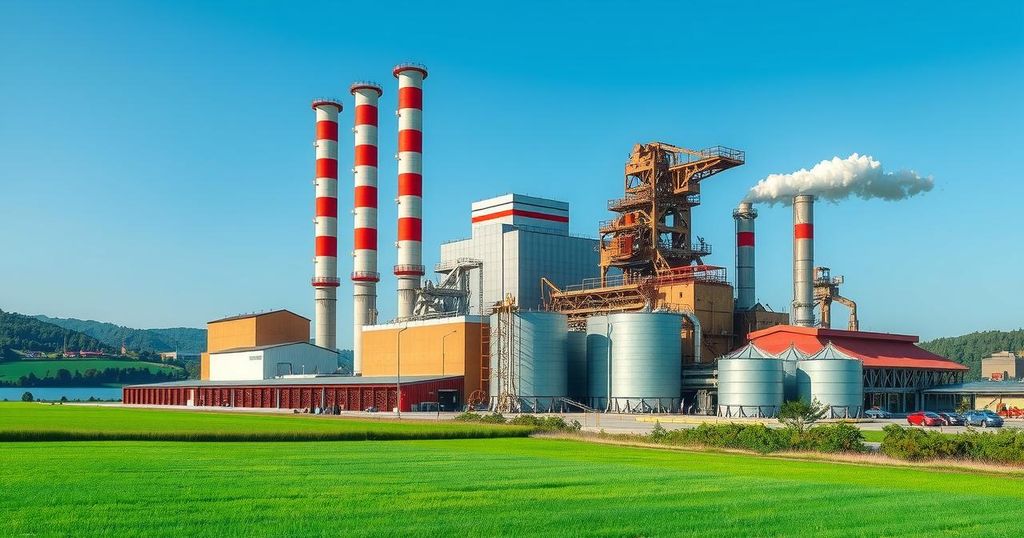Companies
ASIA, BOLIVIA, BRAZIL, CHINA, CUBA, DONALD TRUMP, EXPORT, EXPORT - IMPORT BANK OF CHINA, GEOPOLITICS, IMPORT BANK OF CHINA, JORGE ALVARADO, LATIN AMERICA, LUIS ARCE, MEXICO, MINING, MUTUN, NORTH AMERICA, PUERTO SUARES, PUERTO SUAREZ, SOLAR POWER, SOUTH AMERICA, TRADE RELATIONS, U. S, UNITED STATES, WASHINGTON, XI JINPING
Marcus Li
0 Comments
Bolivia Unveils Steel Plant Funded by Chinese Loan to Boost Economy
Bolivia has inaugurated the Mutun steel plant in Puerto Suarez, funded by a Chinese loan of $546 million. The facility is expected to produce 200,000 tons of steel annually, allowing Bolivia to reduce import reliance and maintain foreign currency reserves. This initiative is part of China’s Belt and Road Initiative, enhancing its influence in South America amid geopolitical tensions with the United States.
Bolivia has inaugurated a steel plant, the Mutun megaproject, constructed with funding from a loan provided by China. Situated in Puerto Suarez near the Brazilian border, this initiative aims to lessen Bolivia’s dependence on metal imports, at a cost of $546 million, primarily financed by the Export-Import Bank of China. This investment reflects China’s expanding economic influence in South America.
President Luis Arce expressed that the primary goal is to allow Bolivians to utilize a natural resource that has remained untapped for years. According to Jorge Alvarado, a representative from the state-run company overseeing the facility, the plant is expected to produce approximately 200,000 tons of steel annually, potentially replacing about 50% of imports and curbing an annual currency outflow exceeding $250 million.
Since 2023, Bolivia has faced significant economic challenges, having depleted much of its international reserves on fuel sold domestically at subsidized prices. The steel plant aligns with China’s Belt and Road Initiative, pivotal in President Xi Jinping’s strategy to enhance China’s presence globally. Meanwhile, Latin America is becoming a strategic zone amid rising tensions between the U.S. and China, with countries under pressure to align with one of the two powers.
The location of the steel plant is rich, containing more than 40 billion tons of iron ore, which constitutes one of the largest deposits globally, confirming its potential to stimulate both the local and national economy.
The inauguration of the steel plant in Bolivia marks a significant development in the country’s strategy to enhance local production capabilities and reduce dependency on imports. As the project highlights China’s growing engagement in South America through direct investment, it also illustrates the geopolitical dynamics at play, particularly regarding the competition between the U.S. and China for influence in the region. The project’s success could alleviate Bolivia’s economic hardships and leverage its vast natural resources.
Original Source: www.hurriyetdailynews.com




Post Comment